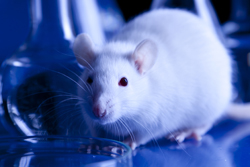Rat functional genomics moves into the clinic
Progress on the creation of rat clones together with advances in high-throughput genomic technologies promise to have a major impact on healthcare. In particular, functional genomic studies on genes that confer a predisposition to diseases with an input from multiple genes could profoundly alter the face of disease therapy. Using advanced genomic tools and the rat model, the 'European rat tools for functional genomics' (Euratools) project aimed to generate information to improve clinical practice for prevalent diseases in Europe. Rapid identification of genes and pathways underlying complex rat disease phenotypes is now possible due to increased availability of rat genomic material. On project completion a completely new approach to data analysis had taken place due to increased access to the rat genome resources. Now made possible, combination with bioinformatics has led to a substantial growth in new complementary DNA sequences, new sequence variants and various novel platforms for high-throughput screening. At the European Bioinformatics Institute, the 'ArrayExpress Atlas of Gene Expression' was developed that compiles genetic information from different experiments across a range of different biological conditions. To further rat genome informatics, courses and meetings took place throughout the term of the project. The focus was on diseases that present major challenges in healthcare in Europe. The entire genome of the spontaneously hypertensive rat was sequenced. Another major achievement was the discovery of an inflammation network. Conserved in humans, this biochemical network contributes to the development of type I diabetes. The scientists also performed a functional and interaction analysis of new genes and their pathways involved in cardiovascular and inflammatory diseases. Rat genomics results were linked with the human genome. For supply of research in the present and future, germline modification procedures were optimised. Euratools set up a repository of live and frozen rat strains including more than 500 transgenic or mutant embryos. Euratools research has developed new resources that will increase understanding of complex genetic traits, many of which are key to the health of Europe. New drug therapies can be formulated for preventing and treating many common chronic diseases prevalent in more affluent societies.







